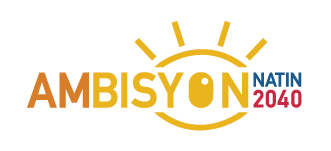MANILA, Philippines – It turns out that most Filipinos don’t aspire to lead rich or extravagant lives – they just dream of a simple and comfortable life.
This was one of the findings of a nationwide National Economic and Development Authority (NEDA) survey conducted among 10,000 respondents, aged 15-50, earlier this year.
The survey, “Ambisyon Natin 2040,” aims to map out a bigger picture of Filipinos’ aspirations and to develop a long-term vision for the Philippines anchored on these hopes.
The survey results showed that 79% of the respondents aspire for a simple life, compared to only 16.9% who want an affluent life (16.9%), and 3.9% who dream of the life of the rich (3.9%).
Based on the survey results, Filipinos’ aspirational simple, comfortable life have the following:
- Medium-sized home
- Enough earnings to support everyday needs
- At least one car/vehicle
- Financial capacity to support children’s college education
- Money for local trips
The survey results also asked respondents for the most important conditions the country should strive to attain. Highest priority was given to the eradication of poverty (28.7%), followed by the elimination of hunger (25.7%), and adequate employment (18%).
The survey, with an error margin of +/- 0.98%, was conducted in January and February this year, and tapped participants across all economic classes.
It covered all territories in the country except for areas deemed too risky (Abra, Sulu, and Basilan), and provinces with a small population (Apayao, Batanes, Siquijor, Camiguin, and Dinagat Islands).
“This is first time we have asked respondents to characterize what well-being means to them in very concrete terms. What we want to happen from here on is that government projects will all be evaluated against this benchmark or barometer,” said NEDA Deputy Director-General Rosemarie Edillon.
Confidence in the future
Around three-fourths of Filipinos or 72.1% believe that by 2040, Filipinos would enjoy a comfortable standard of living while 25% said all Filipinos should have a prosperous and affluent life by then.
Confidence in achieving the desired goals, however, is lower among the poor. Among those who want a comfortable life, 48.5% are not fully confident that they can reach their goals.
The country’s economic track record provides an insight into this. Socioeconomic Planning Secretary Emmanuel Esguerra said at the survey launch on Wednesday, March 30, that over the last 33 years – from 1981 to 2014 – per capita income in the country rose only by 1.8 times.
Esguerra said, however, that based on empirical studies, “with the right policies, improvements in productivity and efficiency can triple our [gross national] per capita income to about $11,000 in 25 years, allowing the majority of our people to enjoy nearly high-income country standards of living.”
Without needed reforms, the Philippines can only grow to an income per capita of around $5,000 over a period of 25 years, not even doubling the current level of $3,500, he warned.
While some things can be improved in the short term, raising the economic standards for millions of people naturally takes time.
This, Esguerra said, was the main reason why the NEDA wanted to put the Ambisyon 2040 project in place first in order “to anchor these successive medium term development plans onto a long term vision.”
The NEDA’s medium term development plans run for 6 years, or the length of an administration. While Ambisyon 2040 has no recommended legislative agenda, it is meant to serve as a guide to future leaders, and for citizens so they can hold their leaders to it.
“The important challenge is for an informed citizenry to present this as their own to succeeding governments and be able to lobby for programs that will help achieve this,” Esguerra said. – Rappler.com
Link: http://www.rappler.com/business/economy-watch/127730-ambisyon-natin-2040-neda-development
